Congress
Rajiv Gandhi Study Circle organized lecture on Nehru Era
Published
2 years agoon
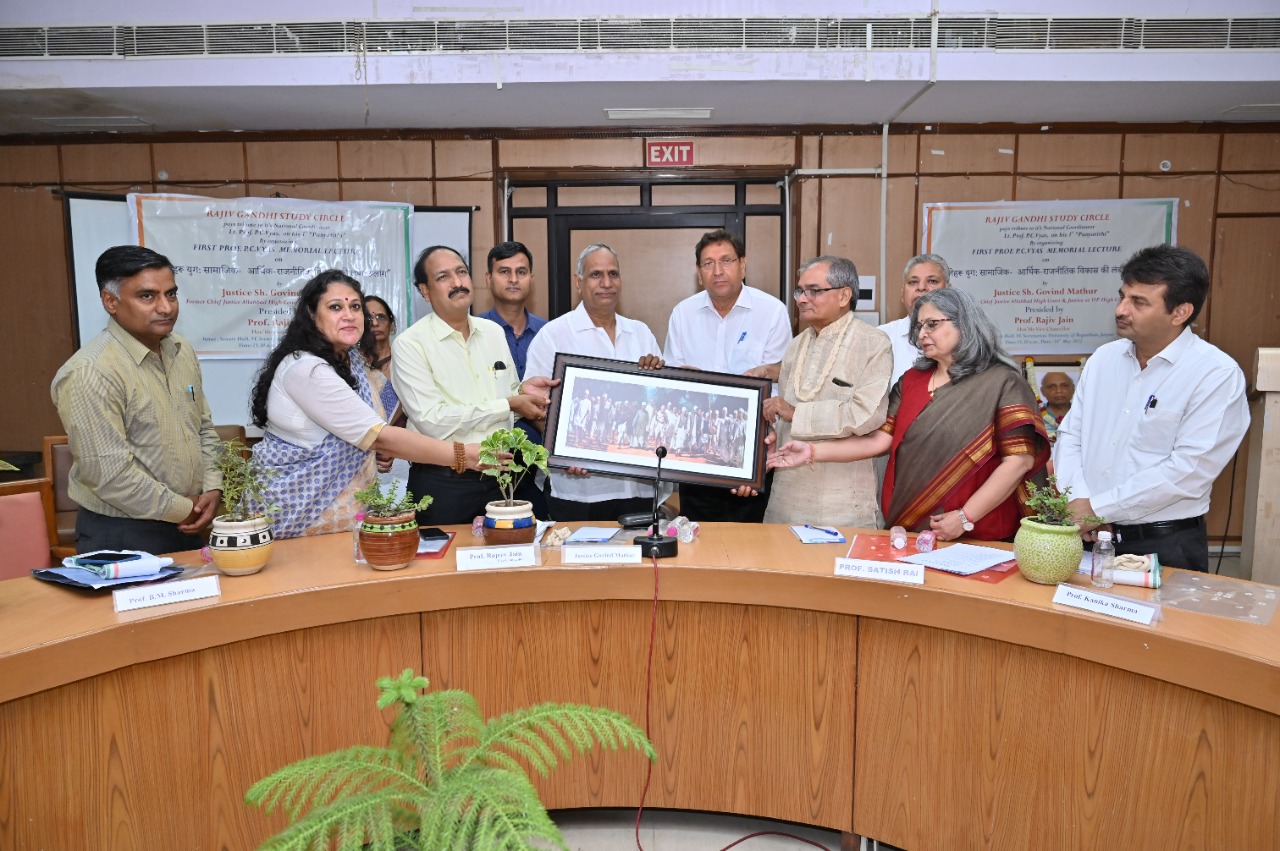
Former Chief Justice of Uttar Pradesh High Court and former Judge of Rajasthan & UP High Court, Justice Govind Mathur delivered the first Prof.P.C.Vyas Memorial Special Lecture on “Nehru Era: Quantum Leap of Socio-Eco-Political Development” organized by Rajiv Gandhi Study Circle in Rajasthan University Senate Hall today. He said that on August 15, 1947, the size of the political map of India was almost half of what it is today. The surgical strikes of Nehru era gave him maximum area expansion. Similarly, the Nehru era has contributed seventy percent to the legal and constitutional reforms of public interest in independent India including social justice laws. Along with building a strong structure of democracy, these achievements of the Nehru era of a quantum leap have been incomparable in the country and the world.
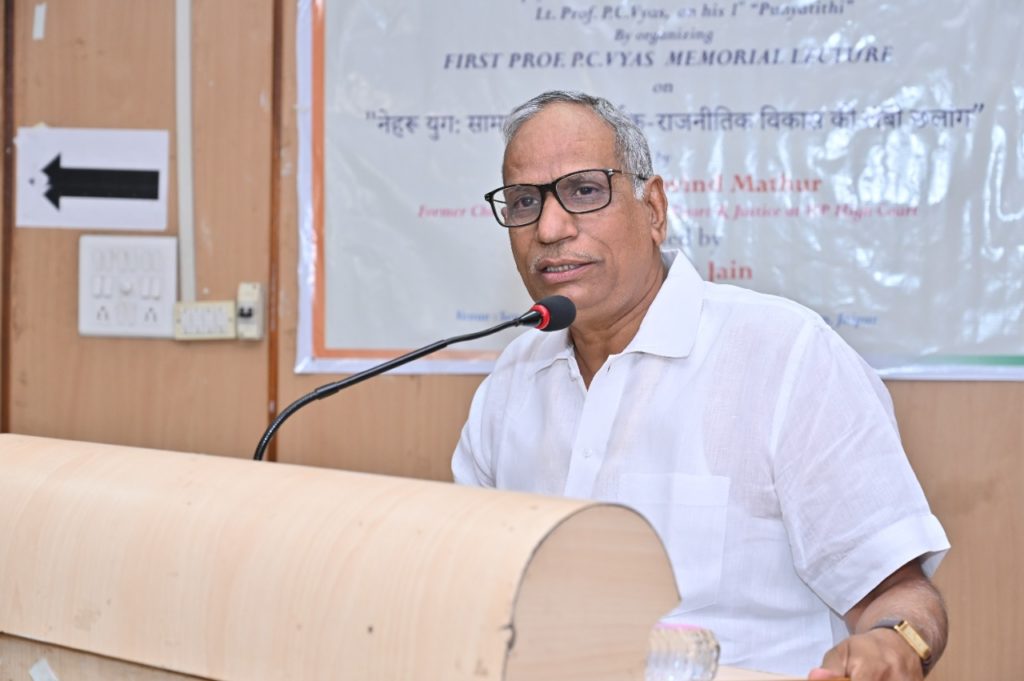
Justice Govind Mathur said that under the leadership of Nehru, the political surgical strike by Sardar Vallabhbhai Patel to merge the princely states into India gave the Indian territory the most expansion after independence. Nehru’s announcement of the accession of Dadra Nagar Haveli to India on August 15, 1960, was a legal surgical strike after winning a case fought with Portugal in the International Court of Justice for five years. The third was the military surgical strike, in which India merged with Goa, Daman Diu in December 1960. The delay in liberating Goa was also strategic, due to a five-year trial from Portugal in the International Court of Justice. India was merged in the Nehru era by freeing the French colony Pondicherry from the fourth diplomatic surgical strike-through long diplomatic efforts. Two more surgical strikes were the 1971 war and the annexation of Sikkim in the post-Nehru era. All these together made India almost double the size of India at the time of independence in 1947.
Justice Govind Mathur told in the lecture that India’s independence in the Nehru era took the form of the world’s largest democracy with the formation of a strong constitution. Nehru himself wrote the preamble like the soul of the constitution. There can be no greater example of Nehru’s love for India’s culture than that, in the original copy of the Constitution, the paintings made by Nandlal Choudhary with each chapter, Nehru used to guide them, where to make which painting.
In the protection of the abolition of Zamindari, to negate the ill-effects of the Patna High Court’s decision in the Kameshwar Singh case, from the first constitutional amendment in the Constituent Assembly itself, from the first constitutional amendment to the many legal reforms, said – These reforms of the Nehru era had a profound and far-reaching impact on economic, social and political development. Nehru may not have been a good lawyer in the court, but his advocacy in favor of these matters from the legislature house to the formation of public opinion was unmatched.</div>In the protection of the abolition of Zamindari, to negate the ill-effects of the Patna High Court’s decision in the Kameshwar Singh case, from the first constitutional amendment in the Constituent Assembly itself, from the first constitutional amendment to the many legal reforms, Justice Govind Mathur said – These reforms of the Nehru era had a profound and far-reaching impact on economic, social and political development. Nehru may not have been a good lawyer in the court, but his advocacy in favor of these matters from the legislature house to the formation of public opinion was unmatched.
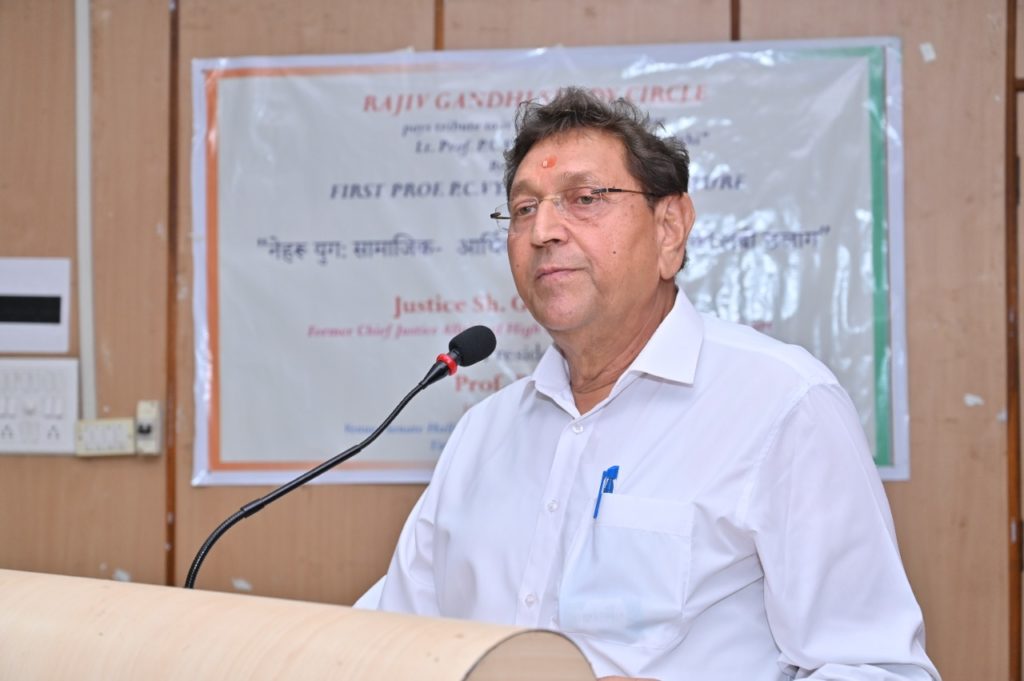
The program organized on the first death anniversary of Dr. P.C. Vyas, the founder coordinator of Rajiv Gandhi Study Circle, President of Rajasthan Education Board, and Professor of Rajasthan University, was presided over by the Vice-Chancellor of Rajasthan University Prof. Rajeev Jain.



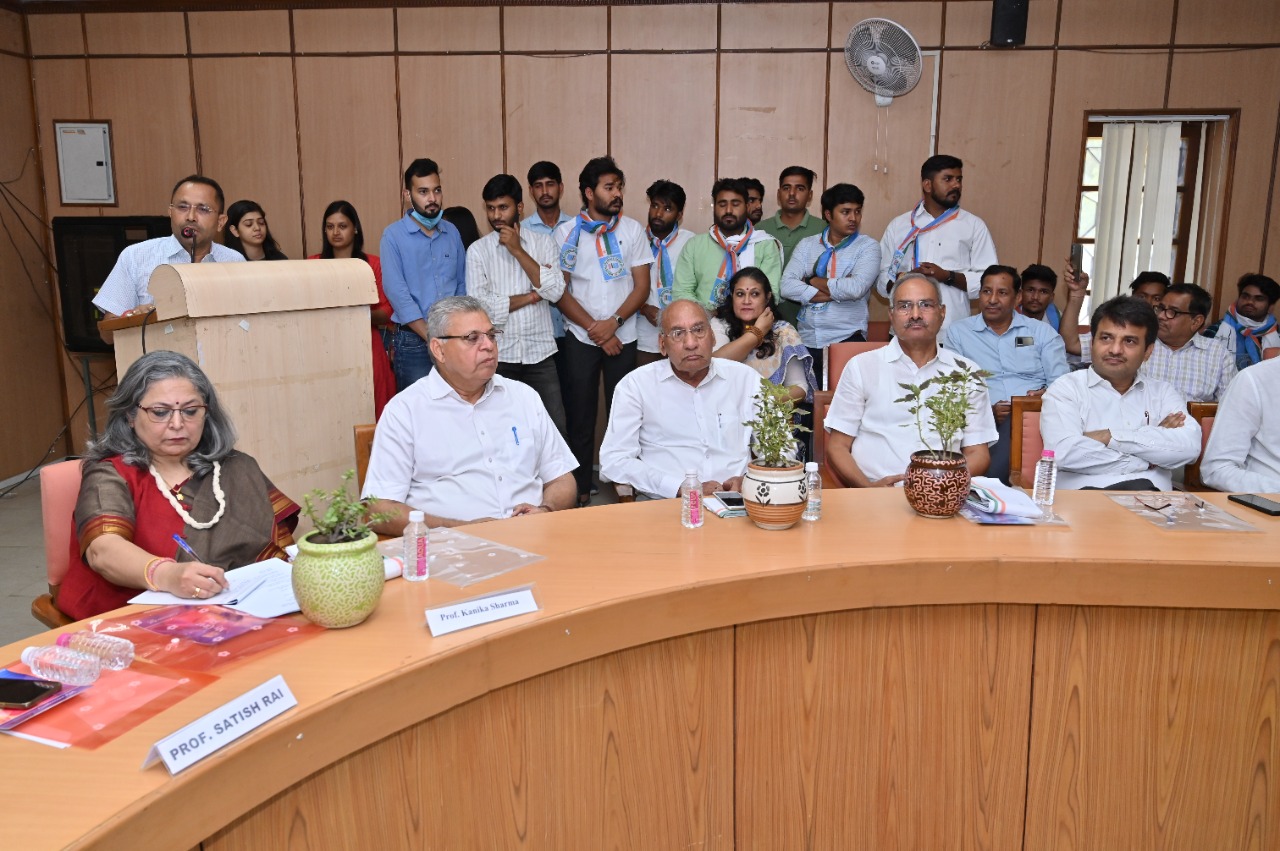
Gandhi Institute Director Prof.B.M.Sharma presented throw light on the personality and creativity of Dr. PC Vyas. National Coordinator of Rajiv Gandhi Study Circle Prof. Satish Kumar Rai elaborated on the topic. The welcome speech was given by Dr. Banay Singh and Prof. Vinod Sharma respectively and the vote of thanks was given by Kanika Sharma and Dr. Dhyan Singh Gothwal on behalf of the Rajiv Gandhi Study Circle. The composition and operation were done by Prof. Nimali Singh. Former Vice-Chancellor Prof.P. C. Trivedi, Prof. R S. Barath, Vice Chancellor Kota Open University, Prof.R. L. Godara, former President, Rajasthan Board of Education, Prof. P.S. Verma, Prof. P. R. Vyas, Prof. H. S. Sharma, Prof. Rajeev Gupta, Prof. Vidya Jain, Prof. Abha Jain, Prof. Rajiv Sharma, Mr. Manish Sharma, Mr. Dharmveer Katewa, Prof. Mahesh Sharma, Dr. M. L. Agrawal (Ajmer), Dr. Bitthal Bissa (Bikaner), Dr.V. S. Panwar, Prof. D.S. Khichi, Dr. Jenaram Nagaur etc. (Jodhpur), Veerpal Singh etc. A large group of students from campus NSUI also participated.
Credent TV Editorial Team

You may like
-
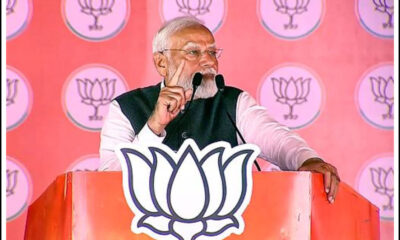

On the Citizenship Amendment Act (CAA), PM Narendra Modi challenges Congress and the SP
-
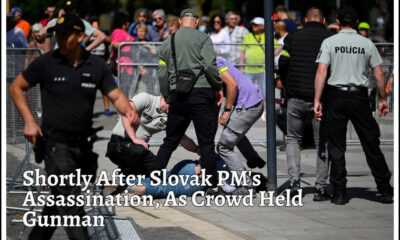

Shortly After Slovak PM’s Assassination, As Crowd Held Gunman
-
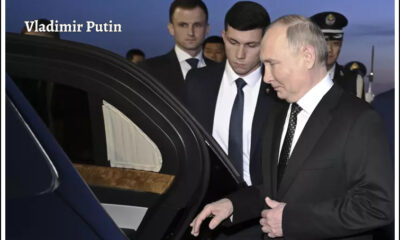

Vladimir Putin, the leader of Russia, makes a state visit to China as a symbol of the alliances’ solidarity
-


NASA: Bright, tiny, plant-like creatures discovered in the Celtic Sea
-
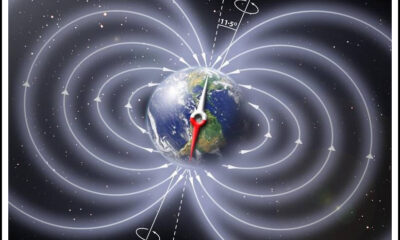

Earth’s North Pole is moving more quickly
-


Kiara Advani will make her Cannes Film Festival debut in 2024
